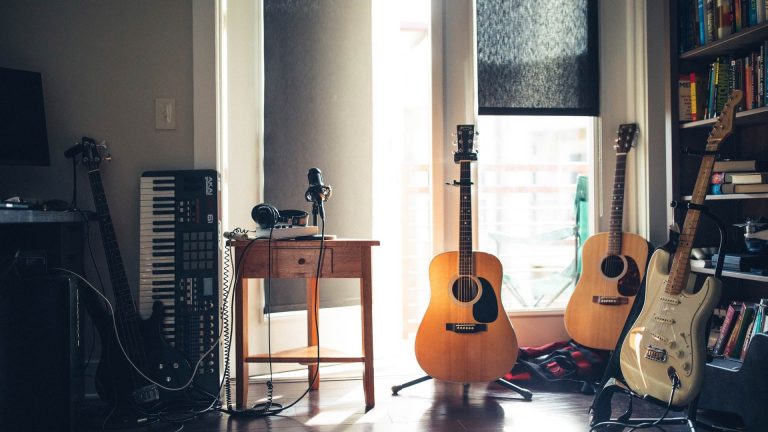Do you have a talent that you can use to entertain people? For instance, do you play a musical instrument and/or sing? Can you perform magic tricks? How about juggling?
All of the above (and a few more) are talents that you can bring to the streets. The practice of entertaining people in public places is called “busking.” The word comes from the Spanish word “buscar,” which means to seek. What you are seeking, of course, is spare change. (So, really busking is a polite term for begging, but you’re providing something in return, so it’s really a lot more dignified than begging.)
PROS:
- Practice makes perfect, so you can improve your talent – whatever it is – while making a little money and, at the same time, bringing a little joy to people’s daily routines.
- Busking can be fun and it can help boost confidence.
- You set your own hours (but see cons).
CONS:
- Busking is a highly interactive form of entertainment – for better or worse, and at times it can be worse. You expose yourself to rude comments about your abilities, unusual requests that you cannot fulfill, and other annoyances.
- If you’re not doing it solely for practice and actually want to make money, you have to work during hours of maximum foot traffic. That may mean Friday or Saturday night working instead of having fun with your friends.
- You’re probably going to work outside, and that means you will be at the mercy of the weather. That means you can’t work in bad weather and (depending on where you live) can only do this at certain times of the year.
- You won’t get rich busking and may come away empty-handed on some days.
How to get started:
NOTE: Before you start your business, you should read the page on this website entitled “things to think about before you start a business.” After you have taken the preliminary steps for starting any business, you can take the specific steps outlined below.
Most likely you know what your talent is if you are thinking about performing on the street. But you may have a talent that you don’t even realize is good for busking, or you may want to develop a talent. To get ideas for busking, visit Busker Central.
After you know what you want to do, you have to choose a location to busk. If you want to make any money at all, you want to choose a spot (and a time of the day) when there is a lot of foot traffic. This research is not difficult: simply go and hang out in a few areas and see how many people come by and when. Be sure to look for a place that is safe and where there is room for you set up without blocking pedestrians.
The website Guitarworld.com offers this advice: “Unless there are strict anti-busking laws in your area, it’s usually OK to start performing on public property as long as you’re not obstructing people or creating a nuisance. If you’re asked or told to leave, and you don’t know the law, the best practice is to just leave. On private property, however (including many open-air markets and fairs), you should always get permission first.”
If you’re going to get serious about busking, it’s a good idea to check out the rules governing public performances in the city or town where you live. In many municipalities, you will have to get a solicitation permit. Generally, those permits do not cost a great deal of money (around $30 or $40) but if you don’t follow the law, you could get shut down.
Another reason to get the permit is that you will be forced to familiarize yourself with the laws governing street performance. Most cities have rules regarding where and when you can perform. With music, for example, the laws may address how loud you can be and how close you can position yourself to restaurants and other businesses.
Also be aware that, in some areas, authorities actually require an audition before you can get your permit.
If you want to busk on private property – for instance, a shopping mall, or in a store parking lot – be sure to ask permission. They may tell you where you can or cannot position yourself, but they may allow it. (Why wouldn’t a business owner want something that adds a little color and enjoyment to the shopping experience?)
After you have chosen your spot and know all the rules, you need to get your act together. Some websites recommend having an hour’s worth of material, but some buskers report that they needed only three or four songs (or tricks, etc.) that they did well to get started. Most people are not going to stop for more than a minute or two, so there is no need to prepare a full show as if you are performing on stage. The better your act, the better the tips are likely to be, but don’t think you have to be a professional performer at the outset.
Just be sure that you can perform your act confidently, without stopping.
Also, be sure to not only have a place for passersby to throw coins and bills, but to have a “tip jar” line – a line in your act when you direct attention to your tip jar/hat/guitar case in a natural and perhaps clever manner.
How much can you earn?:
It goes without saying that how much you earn depends on how entertaining you are and where you are performing. But all evidence is that the money from busking is not the quick road to riches.
An article in Money magazine found that street performers in San Francisco earned an average of $21.22/hour. An article in QUORA found that street performers in Toronto made $25/day. A video blogger on YouTube reports making $30-40 during three-hour shifts playing his saxophone in downtown Boston, and anywhere from $10 to $60 in a night performing in Madison, Wisconsin. All say the money can be good but is inconsistent.
Take it to the next level:
If you want to get into busking seriously, you may want to connect with other buskers for tips and advice. A good place to do that is The Busking Project. Happy busking!
For more formal gigs, see our article Making money from your band








